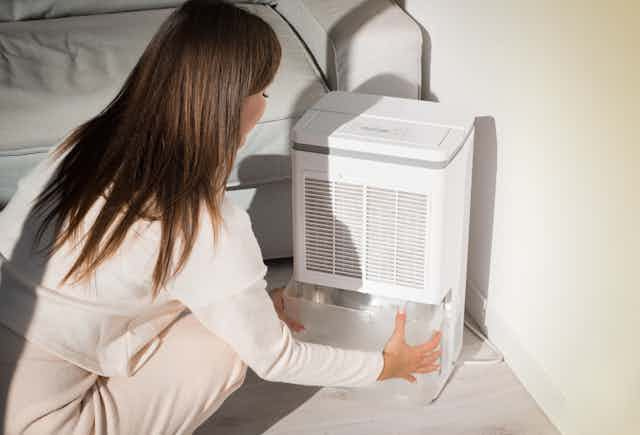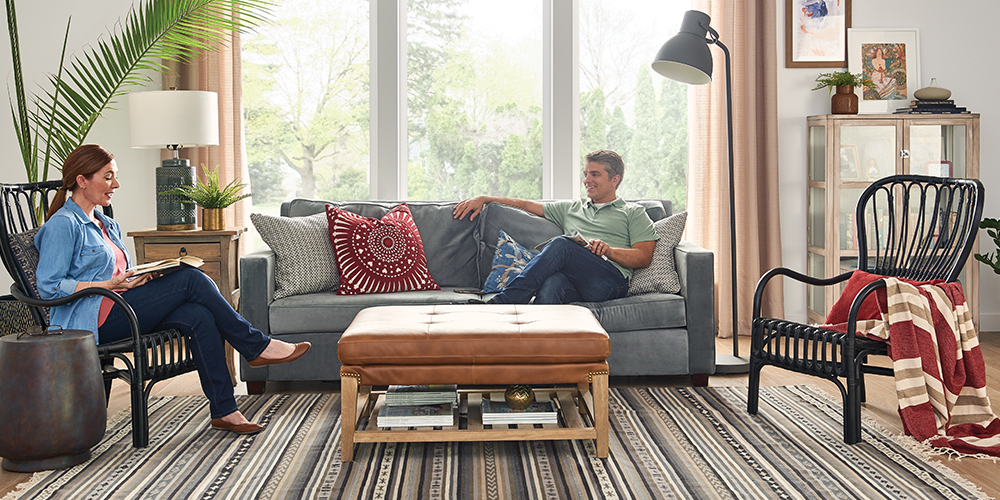Are Dehumidifiers Bad for You?

Many people considering purchasing a dehumidifier wonder, "Are dehumidifiers bad for you?" It’s a common question, especially for individuals unfamiliar with how these appliances work or those who are concerned about the potential drawbacks of using them.
While dehumidifiers are generally safe and beneficial for your health, like any appliance, it’s essential to understand how to use them properly.
In this article, we’ll explain what dehumidifiers do, how they improve your living space, and whether they could negatively impact your health or comfort. We’ll also clarify common misconceptions and address concerns you may have when using a dehumidifier.
What is a Dehumidifier and How Does It Work?
Purpose of a Dehumidifier:
A dehumidifier is an appliance designed to remove excess moisture from the air, improving the indoor environment by maintaining a balanced humidity level. It works by drawing in air, extracting the moisture, and releasing dry air back into the room.
Working Principle:
-
Compressor-Based Dehumidifiers: These use a cooling coil to condense moisture in the air. The air is cooled, moisture condenses, and the water is collected in a tank.
-
Desiccant Dehumidifiers: These use a special material to absorb moisture from the air, and the absorbed moisture is later released when the desiccant is heated.
The primary goal of a dehumidifier is to reduce humidity levels in areas with excessive moisture, such as basements, bathrooms, and kitchens.
Why Are Dehumidifiers Important for Your Health?
Health Benefits:
Dehumidifiers are not just about creating a more comfortable living space—they also play a crucial role in improving indoor air quality and promoting better health. Here are the health benefits:
-
Mold and Mildew Prevention: Excess humidity creates an ideal environment for mold and mildew to grow, which can lead to respiratory issues, allergies, and asthma. A dehumidifier prevents mold buildup by keeping the air dry.
-
Reduced Allergens: High humidity levels provide a perfect breeding ground for dust mites, mold spores, and other allergens. Dehumidifiers help to reduce these allergens, making the air cleaner and more breathable, particularly for those with asthma or allergies.
-
Improved Breathing: Dehumidified air is easier to breathe, especially in environments where high humidity makes it difficult to take deep breaths. By removing moisture from the air, dehumidifiers improve air quality and comfort for individuals who suffer from respiratory conditions.
The Impact of High Humidity on Your Health and Home
Health Issues Linked to High Humidity:
-
Mold and Mildew: Prolonged exposure to high humidity levels can cause mold to grow on walls, ceilings, and furniture. Mold releases spores into the air, which can trigger allergies and respiratory issues.
-
Dust Mites and Allergens: Dust mites thrive in humid environments, and their presence can worsen asthma symptoms and allergies.
-
Poor Air Quality: Humid air feels stuffy and uncomfortable, which may lead to fatigue, dizziness, and a feeling of heaviness. High humidity can also make it difficult to regulate body temperature, especially during hot weather.
Home Damage:
-
Structural Issues: Excess moisture can damage your home by causing wood to rot, wallpaper to peel, and paint to crack.
-
Furniture and Electronics: High humidity can cause furniture to warp and electronics to malfunction due to moisture exposure.
Do Dehumidifiers Have Any Negative Side Effects?
Possible Downsides:
While dehumidifiers offer numerous benefits, there are some potential drawbacks that users should be aware of:
-
Excessive Dryness: If used incorrectly or excessively, dehumidifiers can make the air too dry, leading to issues such as dry skin, irritated eyes, and a sore throat. It’s important to monitor humidity levels and use the dehumidifier only as needed.
-
Noise: Depending on the model, dehumidifiers can be noisy, which may disturb sleep or quiet activities. Look for models with low noise output if this is a concern for you.
-
Energy Consumption: Dehumidifiers use electricity, and while newer models are energy-efficient, they still increase your energy bill. It’s crucial to choose energy-efficient models that consume less power.
How Dehumidifiers Can Significantly Improve Your Life
Improved Indoor Comfort:
By reducing humidity, dehumidifiers help create a more comfortable environment. No longer will you have to deal with the sticky, uncomfortable feeling that often accompanies high humidity. Instead, you can enjoy cooler, fresher air in your home.
Better Sleep Quality:
High humidity can interfere with sleep quality, making the air feel warmer and harder to breathe. Dehumidifiers can lower the humidity, creating a more comfortable sleeping environment for those with allergies or asthma.
Healthier Indoor Environment:
Dehumidifiers improve the overall indoor environment by reducing allergens, preventing mold growth, and maintaining healthy humidity levels. This leads to fewer respiratory issues, improved skin health, and a more comfortable living space.
When Should You Use a Dehumidifier?
Ideal Conditions for Use:
-
Basements: Basements often have higher humidity due to their underground location, making dehumidifiers essential in these areas to prevent mold and mildew.
-
Bathrooms and Kitchens: These rooms tend to accumulate moisture due to showering, cooking, and washing. Using a dehumidifier helps keep these rooms dry and comfortable.
-
Bedrooms: For people with allergies or asthma, a dehumidifier in the bedroom can improve sleep quality by maintaining a healthy humidity level.
Signs You Need a Dehumidifier:
-
If you notice dampness, condensation on windows, a musty smell, or visible mold, it’s time to invest in a dehumidifier.
Conclusion: Are Dehumidifiers Bad for You?
In conclusion, no, dehumidifiers are not bad for you. In fact, they can be incredibly beneficial for your health and home. By reducing excess moisture, dehumidifiers help prevent mold, mildew, and allergens, improving the quality of your indoor air. They also create a more comfortable living environment, especially for individuals who suffer from asthma or allergies.
When used properly, dehumidifiers can significantly improve your home’s air quality, making it healthier and more comfortable. Always choose a model with adjustable humidity settings to maintain the ideal balance and ensure the best results.





Leave a comment